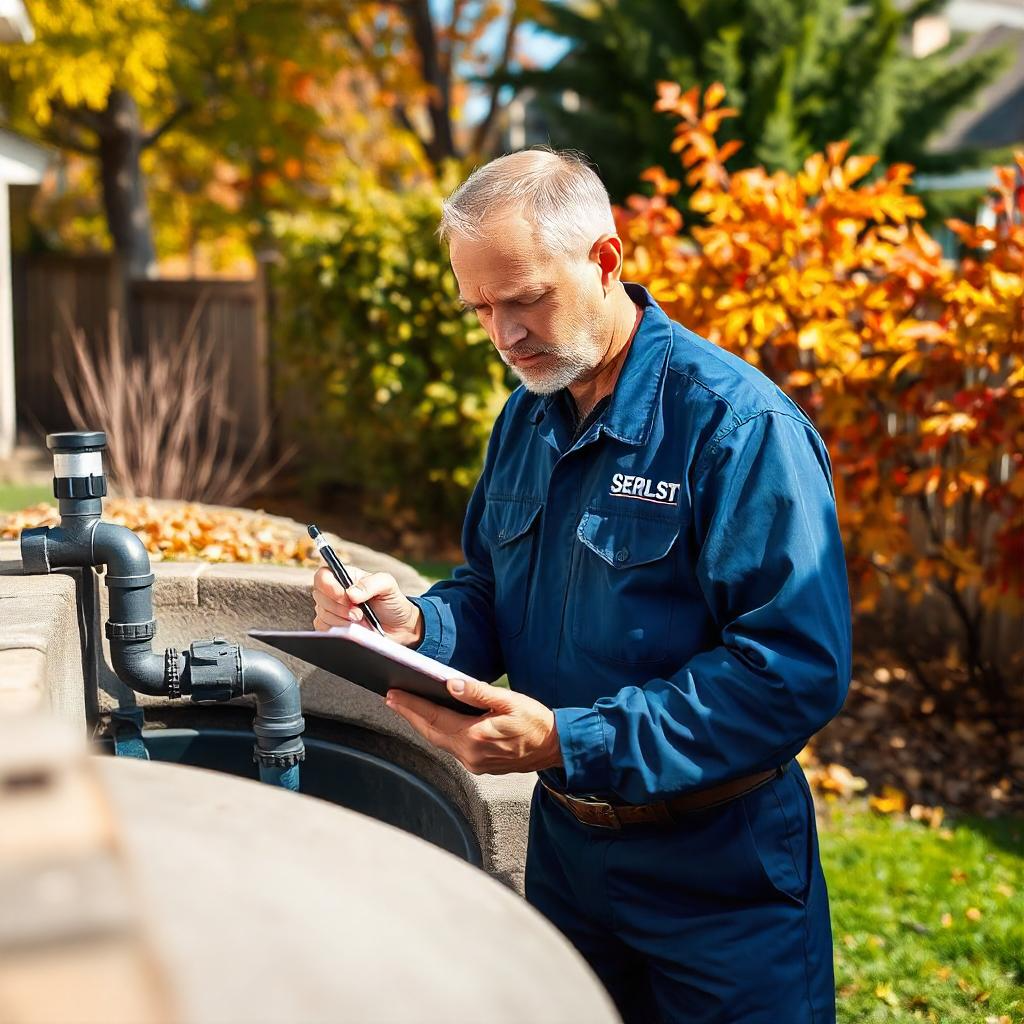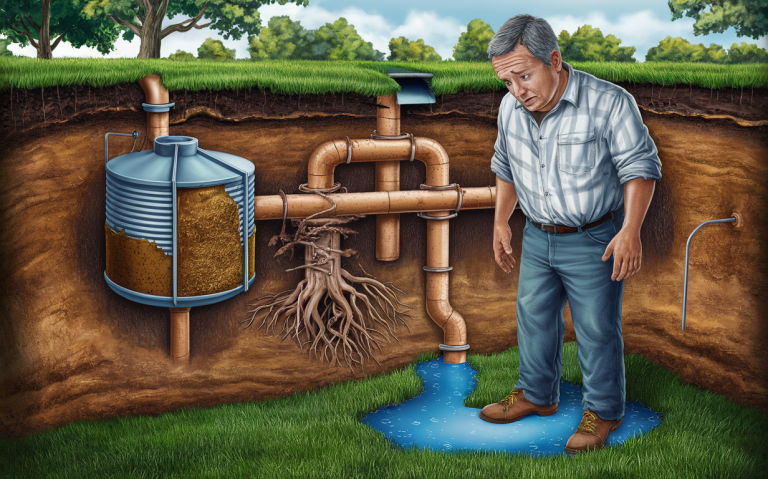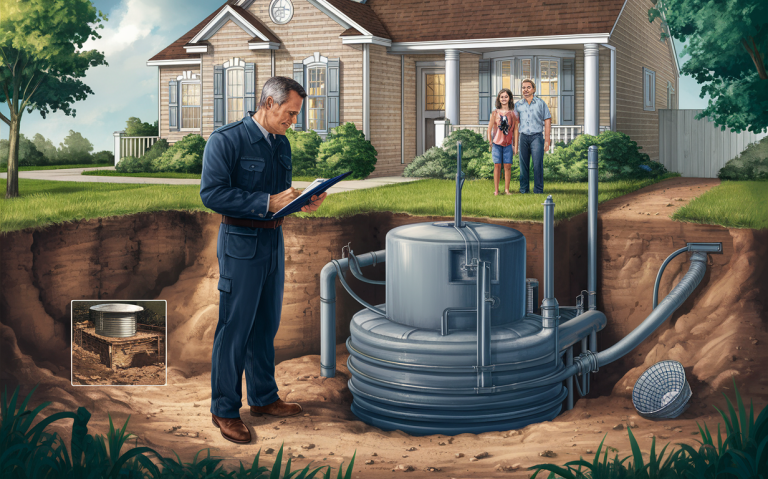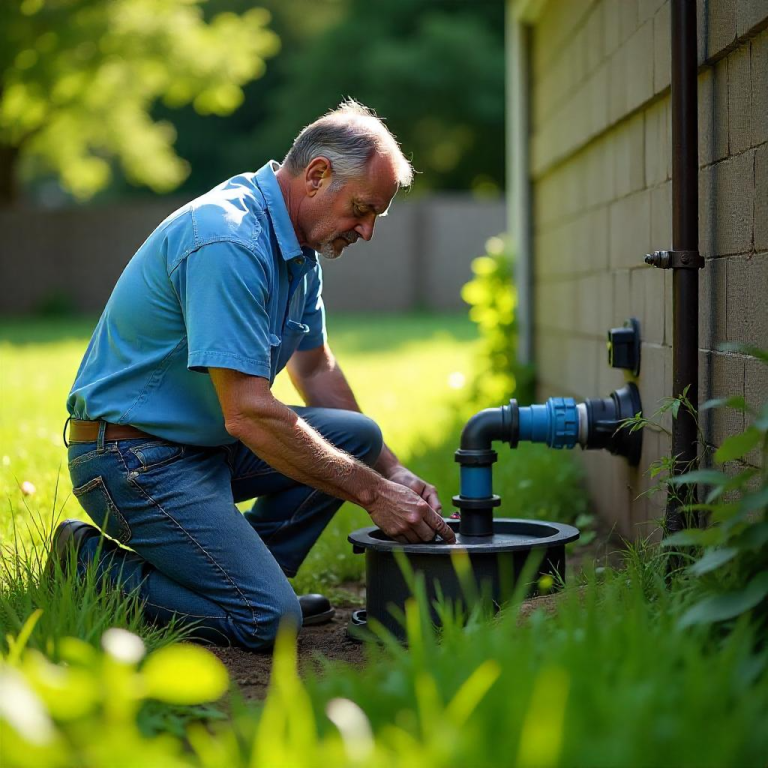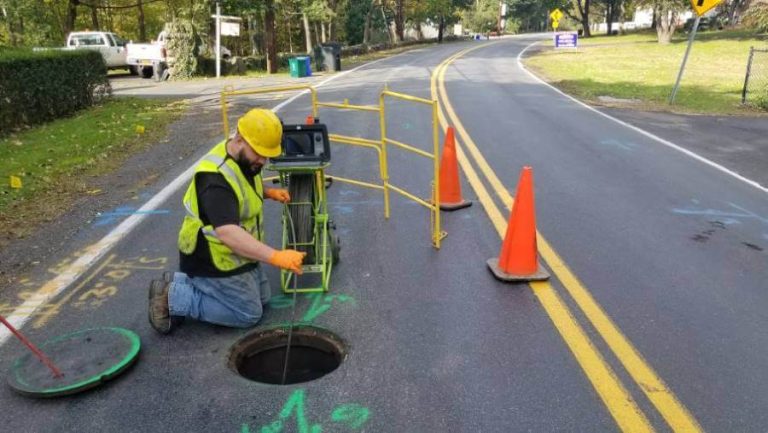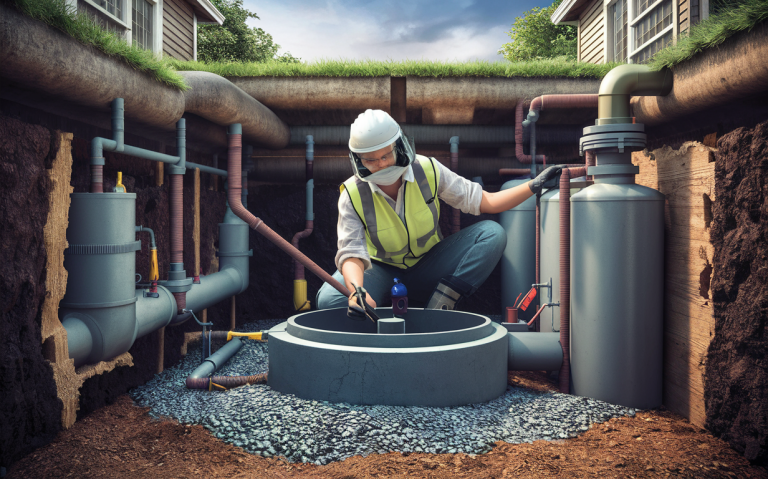Protect Your Home: Regular Maintenance Inspections for Septic Systems
Septic systems play a vital role in managing waste for many households and businesses. Regular maintenance inspections ensure your septic system operates efficiently, preventing costly repairs and health hazards.
Table of Contents
Key Takeaway
- Septic systems need routine inspections to function properly.
- Regular checks help identify potential issues before they become serious.
- Maintenance extends the lifespan of your system and ensures it complies with local regulations.
- Professional inspections provide peace of mind and save money in the long run.
The Importance of Regular Septic System Inspections
Early Problem Detection
Identifying issues early can prevent minor problems from escalating into major ones. A professional inspection can catch signs of clogs, leaks, or system failures that might go unnoticed by the untrained eye.
Compliance with Regulations
Local health departments often require regular septic system inspections to ensure compliance with environmental regulations. These regulations are designed to protect public health and the environment by ensuring septic systems are operating correctly.
Extending System Lifespan
Routine maintenance can extend the life of your septic system. By addressing small issues before they become significant, you avoid the need for expensive replacements or extensive repairs.
Preventing Health Hazards
A failing septic system can contaminate local water sources, posing severe health risks to your family and community. Regular inspections help ensure that your system is functioning correctly, preventing harmful bacteria and pathogens from spreading.
What Happens During a Septic System Inspection?
Visual Inspection
A professional will check for signs of wear and tear, such as cracks in the tank or signs of overflows. They will also examine the drain field to ensure it’s absorbing wastewater efficiently.
Measuring Sludge and Scum Levels
Inspectors use specialized tools to measure the levels of sludge and scum in your septic tank. If these levels are too high, it indicates that the tank needs pumping.
Checking Mechanical Components
Any mechanical components, such as pumps or aerators, will be checked to ensure they are functioning correctly. These parts can be prone to wear and tear and may need occasional maintenance or replacement.
Testing System Performance
The inspector will perform tests to ensure that your septic system is processing waste effectively. This can involve dye tests to check for leaks or other issues in the system.
| Inspection Activity | Purpose | Typical Findings |
|---|---|---|
| Visual Inspection | Identify visible damage or overflows | Cracks, overflows, wet areas in the yard |
| Sludge and Scum Level Check | High levels indicate the need for pumping | Verify the functioning of moving parts |
| Mechanical Component Check | Verify functioning of moving parts | Malfunctions, wear and tear |
| System Performance Testing | Assess overall system efficiency | Leaks, slow drainage, ineffective treatment |
Signs You Need a Septic System Inspection
Slow Drains
If your sinks, showers, or toilets are draining more slowly than usual, it could be a sign that your septic system is failing. This may indicate a clog or an issue with the drain field.
Foul Odors
Unpleasant smells around your home or yard can be a sign that your septic system is leaking or not processing waste properly. These odors are not only a nuisance but can also be a health hazard.
Lush, Green Grass
While a green lawn is usually desirable, overly lush grass in the area above your septic system could indicate a leak. The extra nutrients from the waste can cause the grass to grow more rapidly.
Frequent Plumbing Backups
Recurring plumbing issues, such as backups in your sinks or toilets, are a strong indicator that your septic system needs attention. This could mean your tank is full or there’s a blockage somewhere in the system.
Pooling Water
Water pooling on the ground above your septic tank or drain field is a clear sign that something is wrong. This could mean the system is overflowing or there is a leak in the tank.
How Often Should You Inspect Your Septic System?
General Guidelines
Most experts recommend having your septic system inspected every 3 to 5 years. However, this can vary depending on the size of your household, the amount of waste generated, and the type of system you have.
High-Usage Households
If you have a large family or frequently entertain guests, you may need to have your system inspected more often. High usage can put extra strain on the system, making regular checks essential.
Commercial Properties
Businesses with septic systems should consider more frequent inspections, especially if they handle large volumes of waste. Regular Maintenance Inspections for Septic Systems can prevent downtime and expensive repairs.
| Property Type | Recommended Inspection Frequency |
|---|---|
| Single-Family Home | Every 3 to 5 Years |
| High-Usage Household | Every 1 to 2 Years |
| Commercial Property | Annually or Biannually |
Benefits of Professional Regular Maintenance Inspections for Septic Systems
Expertise and Experience
Professional inspectors bring a wealth of knowledge and experience to the table. They can identify issues that might be missed by someone less familiar with Regular Maintenance Inspections for Septic Systems.
Specialized Equipment
Inspectors use specialized tools and equipment to carry out a thorough inspection. This ensures that all potential issues are identified and addressed.
Peace of Mind
Knowing that your Regular Maintenance Inspections for Septic Systems is in good working order provides peace of mind. You can rest easy, knowing you’re not at risk of unexpected failures or costly repairs.
DIY Maintenance Tips
Regular Pumping
One of the most critical aspects of septic system maintenance is regular pumping. This should be done every 3 to 5 years, depending on usage. Pumping removes the sludge and scum from your tank, preventing overflows and system failures.
Water Conservation
Using water efficiently can reduce the strain on your septic system. Fixing leaks, using high-efficiency fixtures, and spreading out water usage can all help.
Proper Waste Disposal
Only biodegradable waste should go down your drains. Avoid flushing items like wipes, diapers, or grease, as these can clog your system and cause failures.
Protecting the Drain Field
Avoid parking or driving over your drain field, as this can compact the soil and damage the pipes. Also, be mindful of what you plant near the drain field; roots can interfere with the system.
Regular Inspections
Between professional inspections, keep an eye out for any signs of trouble. Addressing issues early can prevent them from becoming major problems.
Common Regular Maintenance Inspections for Septic SystemsIssues and Solutions
Clogs and Blockages Septic
Clogs can be caused by a variety of factors, including non-biodegradable items being flushed or excessive waste buildup. Regular pumping and proper waste disposal can prevent these issues.
Leaks
Leaks can occur in the tank or pipes, causing wastewater to escape into the surrounding soil. Professional inspections can identify and repair leaks before they become serious.
System Overload
An overloaded septic system can’t process waste efficiently. This can be caused by excessive water usage or a lack of maintenance. Regular inspections and pumping can prevent overloads.
Drain Field Failure
If the drain field isn’t absorbing wastewater properly, it can cause backups and overflows. Protecting the drain field and addressing issues early can prevent failures.
The Cost of Neglecting Regular Maintenance Inspections for Septic Systems
Expensive Repairs
Ignoring regular maintenance can lead to costly repairs. What might be a simple fix during an inspection can become a major issue if left unchecked.
Health Risks
A failing septic system can contaminate your water supply, posing serious health risks. Regular inspections ensure that your system is functioning correctly, protecting your family’s health.
Environmental Impact
Wastewater from a failing septic system can seep into the ground, contaminating local water sources and harming the environment. Regular maintenance helps prevent this.
The Role of Technology in Regular Maintenance Inspections for Septic Systems
Advanced Diagnostic Tools
Modern technology has revolutionized septic system inspections. Tools like video cameras and electronic sensors allow for more thorough and accurate assessments.
Remote Monitoring
Some systems can be equipped with remote monitoring technology, allowing for real-time tracking of system performance. This can help identify issues before they become serious.
Choosing the Right Professional for Your Regular Maintenance Inspections for Septic Systems
Check Credentials
Ensure that the professional you hire is licensed and certified. This guarantees they have the necessary training and experience to conduct a thorough inspection.
Read Reviews
Look for reviews and testimonials from previous customers. This can give you an idea of the quality of service you can expect.
Ask About Their Process
Understanding what to expect during an inspection can help you feel more comfortable. Ask the professional to explain their inspection process and what they will be looking for.
Key Questions to Ask During Regular Maintenance Inspections for Septic Systems
What Are the Current Issues?
Understanding any existing problems with your system can help you take immediate action. Ask the inspector to explain any issues they find and recommend solutions.
What Maintenance Is Needed?
Knowing what maintenance tasks need to be carried out can help you keep your system in good working order. Ask the inspector for a list of recommended maintenance tasks.
What Can Be Done to Improve System Performance?
There may be steps you can take to improve the performance and efficiency of your septic system. Ask the inspector for tips and recommendations.
Final Thoughts on Regular Septic System Inspections
Regular maintenance inspections for septic systems are essential for ensuring your system operates efficiently and safely. By identifying issues early, complying with regulations, and extending the lifespan of your system, you can save money and protect your health and the environment. Investing in professional inspections and following maintenance tips can provide peace of mind and prevent costly repairs.
Remember, maintaining your septic system is not just about compliance or saving money—it’s about protecting your home, your health, and the environment. By staying proactive with regular inspections, you ensure that your septic system will serve you well for years to come.
For more information, you can visit our website to schedule or contact us.

